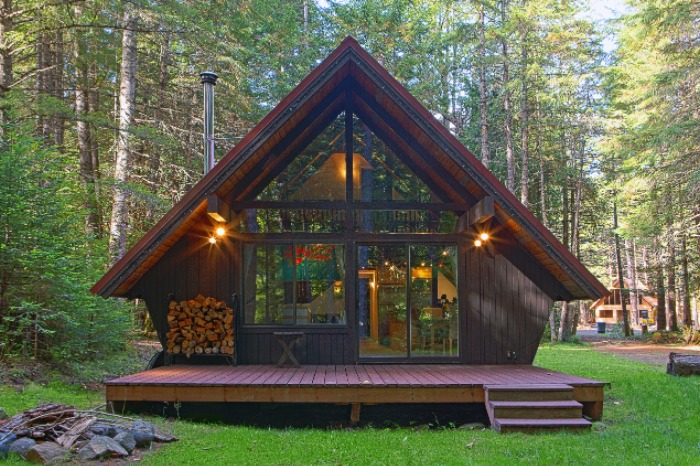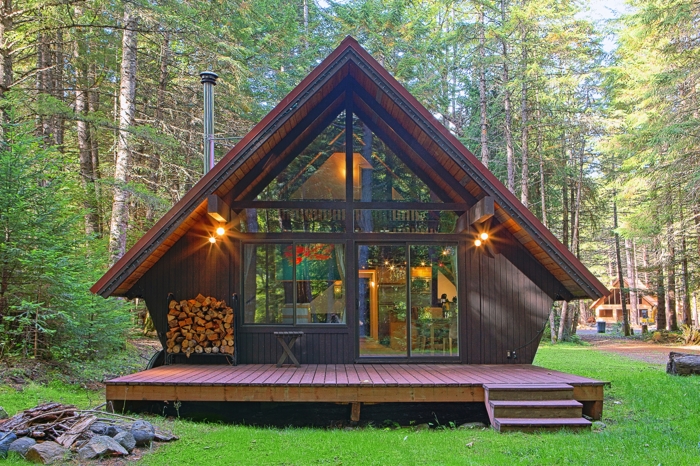Short term rentals have transformed the real estate landscape, offering property owners a lucrative opportunity to generate passive income while capitalizing on the growing demand for vacation rentals.
With platforms like Airbnb and Vrbo driving the short term rental market, investors are increasingly drawn to short term rental properties as a way to achieve steady cash flow and diversify their portfolios.
At 10XBNB, we specialize in helping investors navigate the complexities of short term rentals to maximize returns.
This Airbnb Tips article explores why short term rentals investment remains a strong choice in 2025, key strategies for success, and answers to critical questions for new and seasoned investors.
Why Invest in Short Term Rentals?
Short term rentals offer unique advantages over long term rentals, making them an attractive option for real estate investors.
Unlike long term rentals, which typically involve fixed monthly rent and lease agreements, short term rentals allow property owners to charge higher nightly rates based on demand, location, and seasonality.
This flexibility can lead to significantly higher rental income, especially in high demand markets like coastal cities or tourist hotspots.
The Appeal of Vacation Rentals

Vacation rentals cater to travelers seeking unique, home-like experiences over traditional hotels.
In the past year, travel demand has surged, with many cities reporting record-breaking tourism numbers.
Short term rental properties in these areas can command premium rates, boosting cash flow for investors.
For example, a well-managed vacation home in a popular destination can achieve occupancy rates of 70-90%, far surpassing the revenue potential of long term tenants.
Passive Income Potential
Short term rentals investment is often marketed as a way to earn passive income, but success requires strategic planning.
By leveraging a property management company like 10XBNB, investors can minimize day-to-day responsibilities while maximizing revenue.
From guest communication to cleaning and maintenance, professional property managers streamline operations, allowing investors to focus on scaling their portfolios.
Is Short Term Rental Still a Good Investment?
The short term rental market continues to thrive in 2025, driven by evolving traveler preferences and the rise of remote work.
However, new investors must weigh the pros and cons to make informed decisions.
Pros of Short Term Rentals Investment
- Higher Revenue Potential: Short term rentals typically generate more money per night than long term rentals, especially in high demand areas.
- Flexibility: Property owners can use the vacation property for personal use during off-peak seasons or adjust pricing to match market trends.
- Tax Benefits: Short term rental properties may qualify for tax advantages, such as deductions for maintenance, utilities, and depreciation. Exploring cost segregation can further enhance tax savings.
- Market Growth: The short term rental market is projected to grow as more travelers prioritize unique accommodations.
Cons of Short Term Rentals Investment
- Higher Operating Costs: Short term rentals require frequent cleaning, maintenance, and advertising costs to attract new guests.
- Local Regulations: Many cities have introduced strict guidelines, such as permitting requirements or limits on rental days, which can impact profitability.
- Seasonality: Occupancy rates may fluctuate based on the time of year, requiring careful financial planning.
Despite these challenges, short term rentals remain a strong investment for those who choose the right properties and implement effective strategies. For insights on navigating regulations, check out 10XBNB’s guide to insurance coverage for Airbnb.
Key Metrics for Short Term Rentals Investment
To evaluate the viability of short term rental properties, investors must understand key metrics like the 2% rule, the 50% rule, and cash flow projections.
What Is the 2% Rule in Rental Property?
The 2% rule is a benchmark employed by real estate investors to gauge the potential profitability of a rental property.
It suggests that the monthly rent should be at least 2% of the property’s purchase price.
For example, a $200,000 property should generate at least $4,000 in monthly rent to meet this threshold.
While this rule is more commonly applied to long term rentals, it can serve as a starting point for short term rentals investment by estimating average daily rates and occupancy rates.
Pro Tip: For short term rentals, the 2% rule may be less relevant due to fluctuating nightly rates. Instead, focus on the average daily rate and annual occupancy to calculate revenue potential. Tools like 10XBNB’s mid-term rental calculator can help refine these projections.
What Is the 50% Rule in Rental Property?
The 50% rule estimates that approximately 50% of a rental property’s gross income will be consumed by operating expenses, excluding mortgage payments.
For short term rentals, expenses like cleaning fees, property management, and utilities can eat into profits, making this rule a useful benchmark.
For instance, if a vacation home generates $5,000 in monthly rental income, investors should expect $2,500 to cover operating costs, leaving the remainder for debt service and profit.
How Many Rental Properties to Make $5,000 a Month?

The number of short term rental properties needed to generate $5,000 in monthly profit depends on factors like location, property type, and management efficiency.
On average, a single well-located vacation rental in a high demand market can produce $2,000-$4,000 in monthly cash flow after expenses.
To reach $5,000, investors may need 1-3 properties, assuming optimal performance.
Example Calculation:
- Property Cost: $250,000
- Average Daily Rate: $200
- Occupancy Rate: 75% (22 nights/month)
- Monthly Revenue: $4,400
- Expenses (50% Rule): $2,200
- Cash Flow: $2,200/month
With two such properties, an investor could achieve $4,400-$5,000 in monthly cash flow. For a deeper dive into income potential, explore 10XBNB’s analysis of average Airbnb income.
How Profitable Is a Short Term Rental?
The profitability of short term rentals hinges on several factors, including location, property management, and market demand.
In 2025, short term rentals in popular vacation destinations like Miami, Nashville, or the Smoky Mountains can yield annual returns of 8-12% or higher, outpacing many long term rental markets.
However, profitability varies based on:
- Location: Properties in areas with high travel demand generate higher occupancy rates and nightly rates.
- Property Management: Hiring a property management company like 10XBNB can optimize pricing and guest experiences, boosting revenue.
- Operating Costs: Efficient management of cleaning, maintenance, and advertising costs is critical to maintaining healthy margins.
Pro Tip: Use dynamic pricing tools to adjust rates based on demand, ensuring you capture peak season revenue. For financing strategies to acquire properties, see 10XBNB’s guide to fix and rent loans.
Strategies for Successful Short Term Rentals Investment
To maximize returns, investors must adopt proven strategies tailored to the short term rental market.
1. Choose the Right Location
Location is the cornerstone of short term rentals investment.
Focus on markets with strong travel demand, such as coastal areas, ski resorts, or urban centers with cultural attractions.
Research local laws and HOA rules to ensure compliance, as some areas impose strict guidelines on short term rentals.
2. Optimize Property Design
Short term renters prioritize comfort and aesthetics. Invest in modern furnishings, high-quality linens, and unique decor to stand out on platforms like Airbnb.
Properties with amenities like hot tubs, game rooms, or proximity to attractions tend to command higher rates.
3. Leverage Professional Property Management
Managing short term rentals requires significant time and effort.
A property management company can handle guest inquiries, bookings, and maintenance, ensuring a seamless experience for new guests.
10XBNB’s expertise in property management helps investors achieve higher occupancy rates and rental income.
4. Understand Tax Benefits
Short term rental properties offer tax advantages, including deductions for mortgage interest, property taxes, and operating expenses.
Additionally, strategies like cost segregation can accelerate depreciation, reducing taxable income. Consult a tax professional to maximize these benefits.
5. Monitor Market Trends
The short term rental market evolves rapidly. Stay informed about changes in local regulations, travel demand, and property values to make data-driven decisions.
Platforms like 10XBNB provide resources to help investors stay ahead of the curve.

While short term rentals offer significant rewards, they also come with unique challenges.
Local Regulations and Compliance

Many cities have introduced specific rules for short term rentals, such as licensing requirements or caps on rental days.
For example, some areas limit rentals to two weeks per month or require owner occupancy.
Research local regulations thoroughly to avoid fines or legal issues.
HOA Restrictions
If investing in a condo or community with a homeowners association, review HOA rules carefully. Some HOAs prohibit short term rentals or impose strict guidelines, which can limit profitability.
Market Saturation
In popular vacation rental markets, competition can be fierce. To differentiate your property, focus on unique features, exceptional guest experiences, and targeted marketing to your target market, such as families or business travelers.
Scaling Your Short Term Rentals Portfolio
Once you’ve mastered your first short term rental property, consider scaling your portfolio to achieve greater financial goals. Strategies for scaling include:
- Acquiring Additional Properties: Use profits from existing rentals to invest in new vacation homes in high demand areas.
- Exploring Rental Arbitrage: For investors with limited capital, rental arbitrage—leasing a property and renting it out as a short term rental—can be a low-risk entry point. Learn more in 10XBNB’s guide to Airbnb with no money.
- Selling High-Performing Properties: If property values in your market appreciate, consider selling to reinvest in larger or more profitable rentals. 10XBNB’s Airbnb appraisal guide offers insights on valuing short term rental properties.
The Role of Real Estate Agents in Short Term Rentals Investment
Partnering with a real estate agent experienced in short term rentals can streamline the investment process.
These professionals can identify properties with strong rental potential, negotiate favorable deals, and provide insights into local market trends.
When selecting an agent, prioritize those familiar with vacation rentals and local regulations.
Unique Insights from 10XBNB
At 10XBNB, we’ve seen firsthand how strategic short term rentals investment can transform financial outcomes for property owners.
One unique insight is the power of mid-term rentals—rentals lasting a few months—which can bridge the gap between short term and long term rentals.
These rentals appeal to traveling professionals or relocating families, offering steady cash flow with lower turnover costs. Our mid-term rental calculator helps investors evaluate this hybrid strategy.
Another insight is the importance of guest experience in driving repeat bookings. Properties that offer personalized touches, such as welcome baskets or local guidebooks, tend to receive higher reviews and occupancy rates. 10XBNB’s property managers excel at creating memorable stays that keep guests coming back.
Next steps
Short term rentals investment remains a powerful way to generate passive income, capitalize on high demand vacation rental markets, and build wealth through real estate.
By choosing the right properties, leveraging professional property management, and staying informed about market trends, investors can achieve impressive returns.
Whether you’re a new investor or looking to scale your portfolio, 10XBNB offers the tools, insights, and support to succeed in the dynamic world of short term rentals.
Ready to take the next step? Explore our resources, from selling Airbnb properties to optimizing cash flow, and start building your short term rental empire today.













